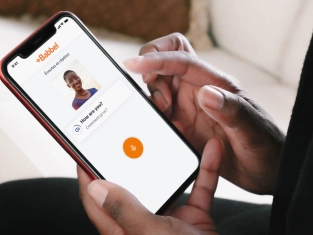by PushtoLearn
Wi-Fi Meaning
What Does "Wi-Fi" Stand For?
Origin of the Term:
The term "Wi-Fi" is a marketing creation and does not actually stand for "Wireless Fidelity," although many people believe it does. The Wi-Fi Alliance, the organization that created the term, chose "Wi-Fi" because it was catchy and resembled "Hi-Fi," a term familiar to many for "High Fidelity" audio systems.
Language Misconception:
Despite popular belief, "Wi-Fi" doesn’t stand for anything specific. It’s an invented term meant to brand wireless networking technology. This linguistic confusion is a great example of how marketing can shape our understanding of technical terms.
Usage of "Wi-Fi" in Language
Noun Usage:
"Wi-Fi" is primarily used as a noun in sentences, referring to the wireless network or technology itself.
Examples:
➡️ "Does this café offer Wi-Fi?" (Refers to the availability of a wireless internet connection.)
➡️ "My phone automatically connects to the Wi-Fi when I get home." (Refers to the act of connecting to a wireless network.)
Adjective Usage:
"Wi-Fi" can also function as an adjective to describe devices or systems that use this technology.
Examples:
➡️ "I bought a Wi-Fi router to improve my internet connection." (Describes the type of router.)
➡️ "Wi-Fi-enabled devices are very convenient." (Describes devices that can connect to Wi-Fi networks.)
Evolution of the Term "Wi-Fi"
Adoption and Popularity:
The term "Wi-Fi" has become so ingrained in our language that it’s often used interchangeably with "internet" or "network" in casual conversation, though technically they are not the same. This shift demonstrates how language evolves alongside technology.
Global Usage:
"Wi-Fi" is widely recognized and used internationally, often without translation, making it a universal term in the tech world. It’s pronounced the same way in many languages, though spelling variations might occur in non-Latin scripts.
Language and Branding
⭐ Impact of Branding:
The creation of "Wi-Fi" as a term is a prime example of how branding influences language. Even though the term doesn’t have a technical acronym behind it, its widespread use has made it synonymous with wireless internet.
⭐ Cultural Perception:
The term "Wi-Fi" is perceived as modern and essential, often seen as a necessity in homes, workplaces, and public spaces. Its cultural importance is reflected in how frequently it appears in everyday language, media, and marketing.
FAQ
Why is it called "Wi-Fi" if it doesn’t stand for anything?
The term "Wi-Fi" was created by the Wi-Fi Alliance as a catchy, easy-to-remember brand name, not as an acronym.
How do people use "Wi-Fi" in language?
"Wi-Fi" is used as both a noun (e.g., "Connect to the Wi-Fi") and an adjective (e.g., "Wi-Fi router").
Has "Wi-Fi" influenced other languages?
Yes, "Wi-Fi" is widely used internationally and is often adopted into other languages without translation.
Can "Wi-Fi" be used to refer to the internet itself?
Informally, yes, people often use "Wi-Fi" to mean internet access, but technically it refers to the wireless network that connects devices to the internet.
Is "Wi-Fi" a universally understood term?
Yes, "Wi-Fi" is globally recognized and understood, making it a universal term in the digital age.

